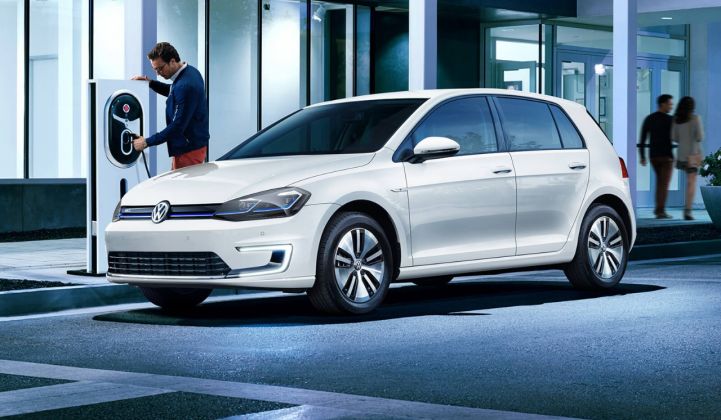Volkswagen announced Tuesday that it had secured about $25 billion in battery supplies and technology, a sum it plans to scale up to about $60 billion as it looks to expand electric-vehicle manufacturing.
The announcement comes after Volkswagen’s diesel emissions scandal pushed it toward an electric agenda to save face. While the German manufacturer is just one of many auto giants planning to capitalize on the growing EV market, its investment is an aggressive one, especially for the world’s largest carmaker.
So far, Volkswagen’s battery play includes partners in Europe and China, where the company sells roughly 80 percent of its vehicles. It plans to decide on North American suppliers soon.
The German automaker will work with LG Chem, Samsung and Chinese battery maker Contemporary Amperex Technology Co Ltd, and currently has no plans to start producing battery packs by itself, Reuters reports. At least 10 major battery factories are already in the works around the globe.
While VW will continue outsource battery assembly, the company announced it would increase its EV-producing plants from three to 16 by the end of 2022.
“This is how we intend to offer the largest fleet of electric vehicles in the world,” said the company’s chief executive Matthias Müller.
It’s not the first time the manufacturer has expressed its desire to beat out other car companies in the EV race. But over the past months, Volkswagen’s commitments have continued to grow.
In November, the company committed 34 billion euros (about $42 billion) to a plan that supports electric and self-driving vehicles (even if that technology is still a ways off) as well as other mobility services. That was just months after it promised to spend 20 billion euros (about $25 billion) on EVs and self-driving cars.
Taken together the investments should help Volkswagen produce its planned 3 million electric cars per year by 2025. To hit that target Bloomberg reported that the manufacturer plans a brisk pace, rolling out a new electric model nearly every month starting in 2019. The manufacturer plans to offer electric models of all its cars by 2030.
The efforts will also support Volkswagen's rollout of its Modular Electrification Toolkit (MEB) platform. The company says that research will make EV manufacturing faster and potentially more affordable. The first MEB-produced model should come in 2020.
Volkswagen’s move represents a bold attempt to dominate the EV market, but it still faces stiff competition as carmakers move away from initial hesitancy to embrace EVs. Tesla, though struggling to deliver cars on time, has invested $17.5 billion in EV batteries and has alluded to plans for future gigafactories. Volvo pledged that next year all of its cars will move to electric. Other manufacturers like General Motors and Toyota have made smaller commitments to develop a portfolio of electric models.
And Renault-Nissan-Mitsubishi, the globe’s current largest seller of EVs, said in January it wouldn’t loosen its grip on that title. At the same time it announced an investment of up to $1 billion in “next-generation mobility.”
Unlike some of its competitors, Volkswagen isn’t going entirely in on electric vehicles -- for now. The company, in its pivot, has framed electric cars as core to its mission. But its strategy still leaves room for standard vehicles.
"There will be a co-existence between internal combustion engines and electric drive systems for a certain period -- I can't tell you how long that will be," Mueller told the BBC in September.




